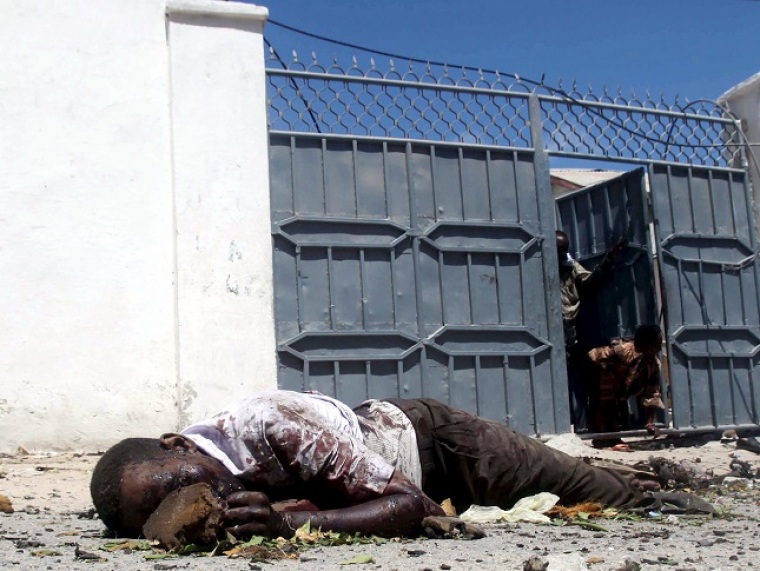Al-Shabab suicide bombers detonate two blasts, gun down 10 in Somalia

MOGADISHU, Somalia (Christian Examiner) – Earlier today al-Shabab suicide bombers were responsible for two explosions near the entrance to a Somali government complex in Mogadishu, allowing gunmen to rush the facilities, killing as many as 10 people.
"First two blasts occurred, a bike blast and a car blast, outside the building, then armed fighters stormed in," Major Ali Nur, a police officer, told Reuters.
Gunfire erupted in the offices of the ministries for higher education and petroleum and minerals which occupy the same building. The ministry of foreign affairs, which has been hit by a string of similar attacks in recent months, is located in an adjacent building.
An al-Shabab spokesman told Reuters the terrorist group was behind the attack
Meanwhile, a government spokesman reported by Twitter that 10 people, two soldiers and eight civilians, had been murdered by the attackers. He also said seven militants were killed.
Al-Shabab is a radical Islamist group intent on eliminating any Western influence in Somalia in order to establish a fundamentalist Islamic state.
According to experts with the Council on Foreign Affairs, the group once controlled most of Somalia, including Mogadishu, but has been weakened in recent years from a sustained campaign by the multinational African Union military forces. Still, because of distrust by clan leaders for government corruption, al-Shabab remains in control of most of central and southern Somalia.
Additionally, al-Shabab attacks in other countries in the region, such as the April 2 massacre of 150 Christian students at Garissa University in Kenya, indicate it is still a major threat to stability in sub-Saharan Africa.